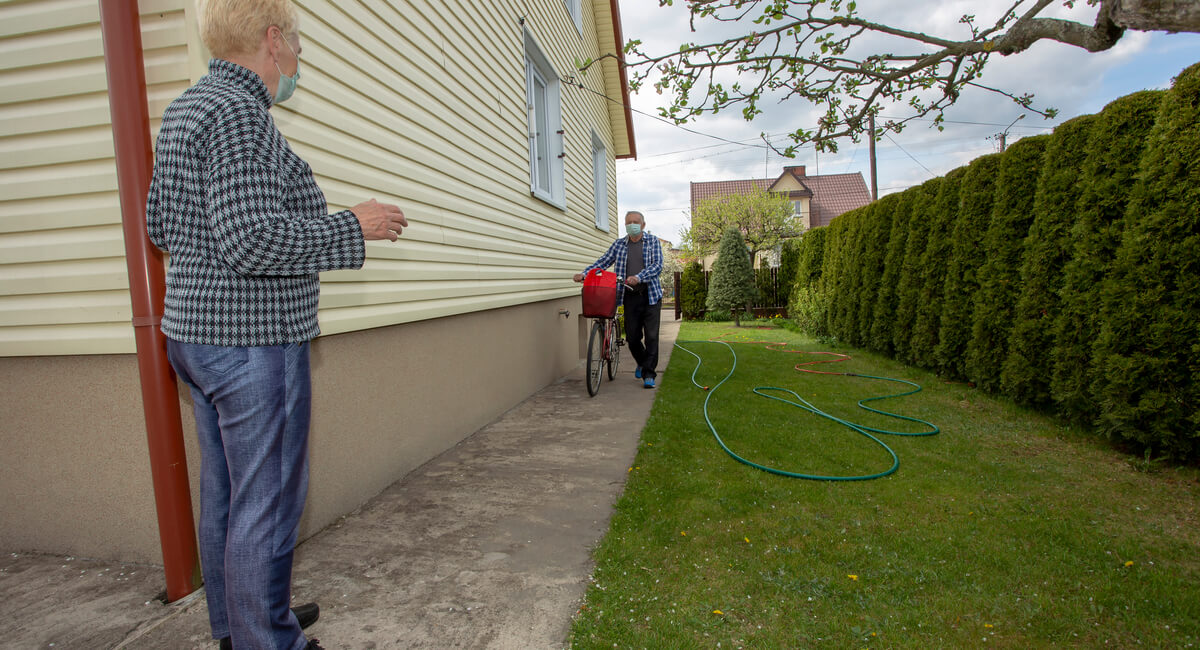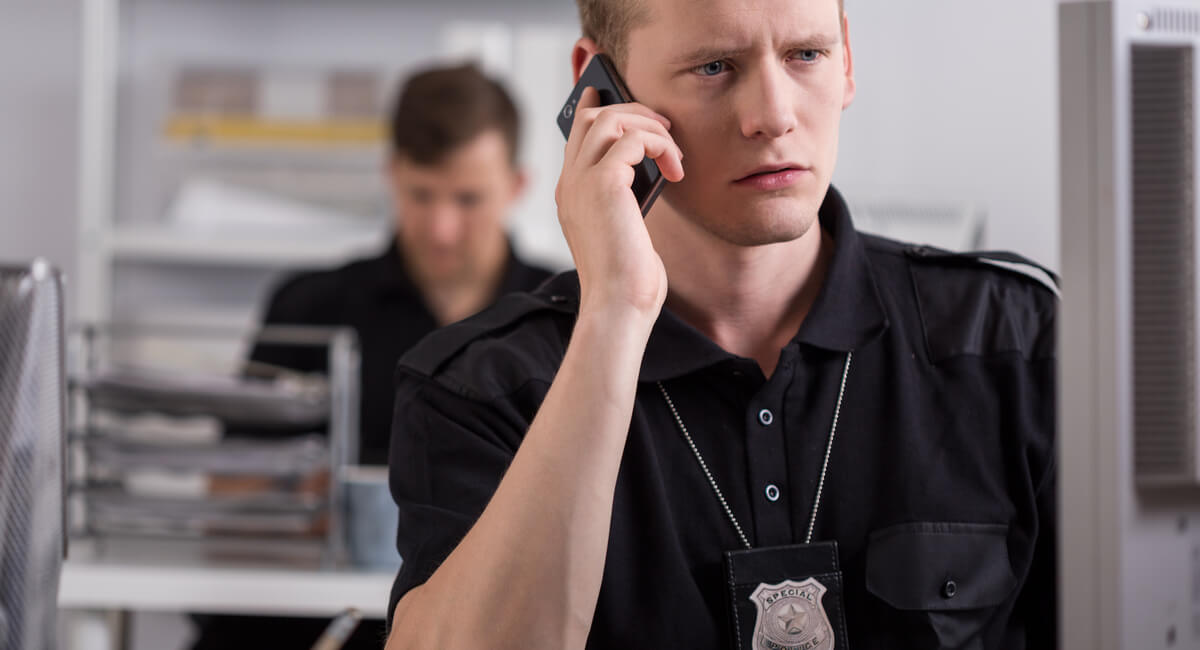Dealing with difficult neighbors can be stressful and uncomfortable, but it’s important to quickly resolve conflict within your community. Maybe you just moved into a new home and have discovered that your neighbor next door has some disruptive habits. Maybe a new family moved in down the road and is looking for a confrontation for no reason. Regardless of the circumstances, it’s normal to feel unsure of how to proceed. You don’t want to have a bad relationship with your neighbors, but you also need to advocate for yourself.
If you’re running into issues with your neighbors, you should approach the situation thoughtfully. Here are eight suggestions for dealing with difficult neighbors:

Start Off Friendly
When an issue with your neighbor first arises, you should always start by acting as friendly as possible. If you rush into a confrontation, the situation may only escalate. Instead, approach your neighbors with warmth and kindness.
If you haven’t yet introduced yourself to your neighbor, consider starting a friendly conversation with them before you bring up any issues. Try to find a shared interest or offer your neighbor a compliment to foster a positive connection. Then, gently bring up your concern. Suggest a solution for the issue, or ask your neighbor how the two of you can compromise.
In many cases, people don’t even realize that they’re acting in a way that harms or inconveniences others. A friendly and open conversation may be all they need to change their behavior. However, if your neighbor gets defensive, remove yourself from the conversation and give yourself some time to think over your next steps.
Listen and Empathize
In your effort to develop a friendly relationship with your neighbor, listen to them closely and empathize with them. They may have a valid reason for their behavior. Listening with respect will allow you to better understand them. With this understanding, you may be able to find a compromise.
Empathy is equally important if your neighbor approaches you with a concern. If your neighbor accuses you of acting disruptively or disrespectfully, you might feel defensive or angry. Try to put yourself in their shoes to understand where they’re coming from. You know you’re not trying to be a bad neighbor, but there’s always a chance that you’re unintentionally doing something bothersome. By empathizing with your neighbors, you ensure that you’re doing your part to build a healthy and happy community. Also, when you take your neighbors’ concerns to heart, they’re more likely to genuinely listen to you when you have an issue.

Let Some Little Things Go
If a neighbor’s behavior is impacting your quality of life, it is your right to speak up for yourself. Everyone deserves to feel comfortable and at peace in their own community. However, in some cases, it may be best to let the little things go.
For instance, if your neighbor throws one loud party per year, it might not be worth creating conflict. This will prevent you from gaining a reputation as a confrontational neighbor. Then, when a larger concern arises, your neighbors will be more likely to respect your wishes.

Know the Law
If you don’t have any success resolving a problem with a friendly conversation, it may be time to escalate the issue. First, you should thoroughly research the laws and regulations in your area. Not all neighborhood conflicts involve breaking the law, but if your neighbor is violating any type of rule, you’ll have more ground to stand on.
You could start by looking into local and state laws regarding your concerns. For instance, some towns have noise ordinances, and some states have leash laws for dogs. If you live in a community with an HOA (Homeowners’ Association), you should also thoroughly read those regulations. Consider contacting your town’s housing department or consulting with a lawyer if you’re not sure whether the law is on your side.

Consult With Other Neighbors
If you have a friendly relationship with another neighbor, ask them if they’ve experienced the same issues you have. Knowing that someone else has the same concerns can be validating, and your neighbor may be able to offer some insight or suggest a solution that you hadn’t considered.
Having another neighbor on your side can also be helpful if you have to confront someone about their behavior. You can collaborate to come up with the best course of action and support one another if the conflict escalates.

Document Your Evidence
If your neighbor is displaying a repeated pattern of behavior, you should gather any and all evidence that supports your case. Supporting evidence will help you convey the seriousness of the situation to your HOA, local authorities, or any other parties that can help resolve the situation.
For complaints involving a noise issue, try to take video or audio recordings of the noise. Make sure to track the dates and times of the noise violations, especially if they happen late at night. If you’re concerned about trash piling up on the curb, take photos. Keep all texts, emails, or other written communication from your neighbor as well. You may need to start a written log of your complaints if you have no other way to gather evidence.

Work With a Mediator
Before you contact your HOA, local housing department, or the authorities, you should make sure you’ve exhausted all other options for settling the dispute. A professional community mediator can be an excellent resource for resolving neighborhood problems. They will act as a neutral third party and will hold space for everyone to share their perspectives. If the conversation gets heated, your mediator will help all parties get back on track.
You can find a community mediator online or by consulting local organizations. The courthouse or police department may have a list of local mediators. Your state’s bar association may be able to direct you to a mediator as well.

Call the Authorities for Major Concerns
You may be able to resolve small disputes with a friendly conversation or some simple negotiation, but you should not hesitate to contact the authorities for serious safety concerns. If your neighbor has threatened you, you should call the police instead of confronting your neighbor directly. If you’re concerned about the well-being of someone in your neighbor’s home, a discreet call to the authorities for a wellness check may be your best course of action.
Neighborhood issues can range from mild annoyances to dangerous problems. Not all concerns will have the same solution, but it’s always wise to take steps toward healthy and productive conflict resolution. A face-to-face conversation may be all you need to solve an issue with your neighbor. If the problem persists, it’s time to do your research, collect evidence, and involve a third party for support if necessary. Confronting a neighbor can be uncomfortable, but you deserve to feel safe and happy in your community.



